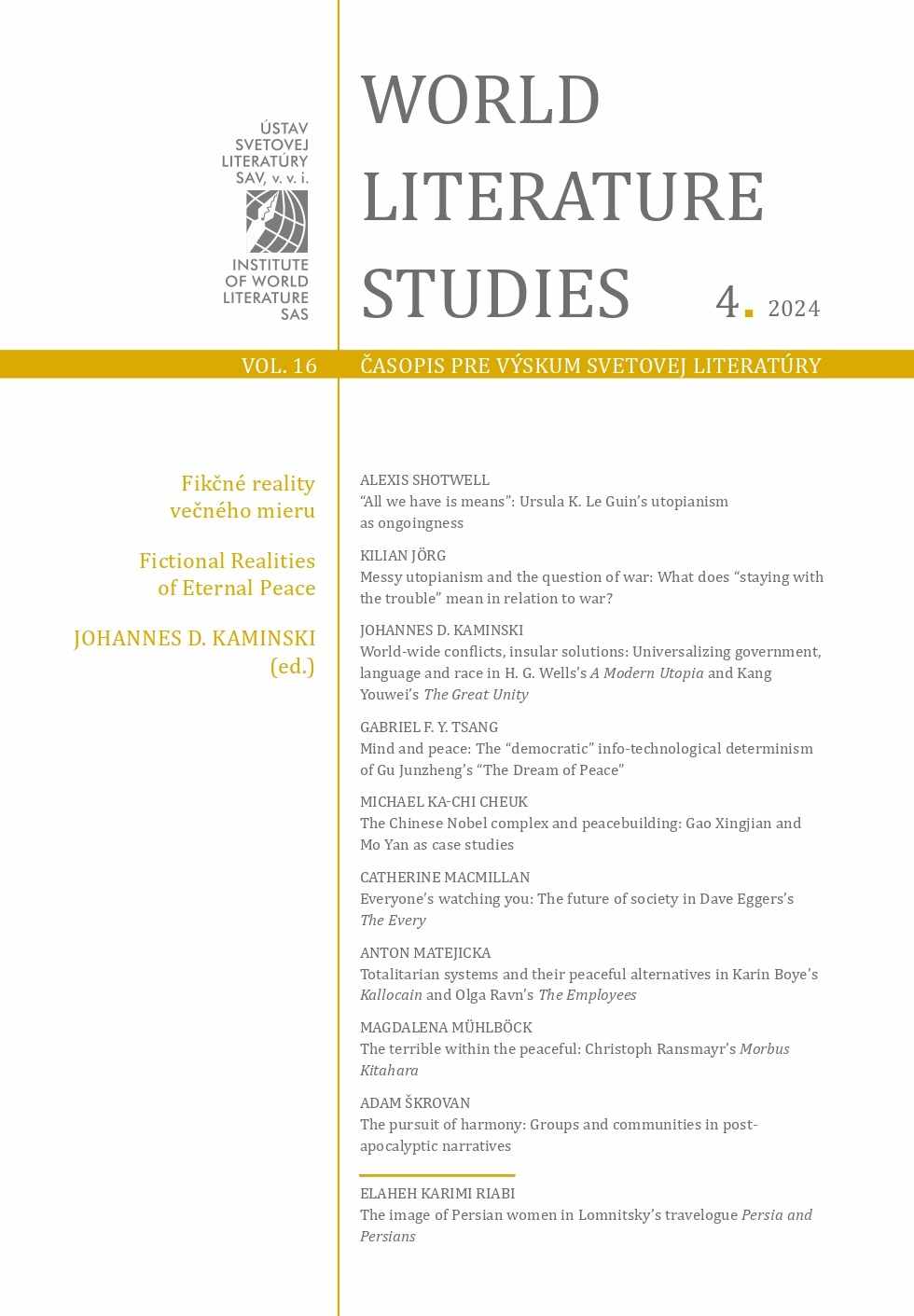World-wide conflicts, insular solutions: Universalizing government, language and race in H. G. Wells’s A Modern Utopia and Kang Youwei’s The Great Unity
World-wide conflicts, insular solutions: Universalizing government, language and race in H. G. Wells’s A Modern Utopia and Kang Youwei’s The Great Unity
Author(s): Johannes D. KaminskiSubject(s): Language and Literature Studies, Historical Geography, Political Theory, Other Language Literature, Philosophy of History, British Literature
Published by: SAV - Slovenská akadémia vied - Ústav svetovej literatúry
Keywords: Political theory; Utopianism; Ethnocentrism; Racism; Centralization
Summary/Abstract: In H. G. Wells’ s and Kang Youwei’ s early 20th century utopias, World Governments take center stage by proposing global political orders to prevent large-scale wars. Both texts propose not only the centralization of military and juridical power, but also the homogenization of culture and language as well as race. Despite both texts’ ostentatious cosmopolitanism, however, their visions are compromised by their (Anglo- and Sinocentric) ethnocentrism and racism. In light of the complex narrative forms of both texts, this article proposes an alternative to judging them by today’s liberal values. Their sprawling form requires a consideration of their full heterogeneity, including Wells’ s use of narrative irony and Kang’ s intergalactic vision of cosmic citizenship.
Journal: World Literature Studies
- Issue Year: 16/2024
- Issue No: 4
- Page Range: 29-46
- Page Count: 18
- Language: English

